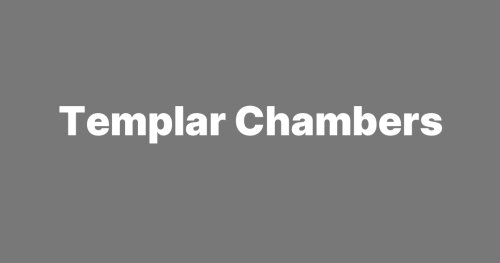Best Communications & Media Law Lawyers in Guyana
Share your needs with us, get contacted by law firms.
Free. Takes 2 min.
Or refine your search by selecting a city:
List of the best lawyers in Guyana
About Communications & Media Law in Guyana:
Communications & Media Law in Guyana governs the regulations and guidelines surrounding the use of communication technologies and media outlets in the country. These laws are in place to protect the freedom of expression, privacy rights, and ensure that information is disseminated fairly and accurately.
Why You May Need a Lawyer:
You may require legal assistance in Communications & Media Law in Guyana if you are facing issues such as defamation, copyright infringement, censorship, or breach of privacy in the media. A lawyer can help you navigate these complex legal matters and protect your rights.
Local Laws Overview:
Key aspects of local laws in Guyana related to Communications & Media Law include the Broadcasting Act, which regulates radio and television broadcasting, and the Cybercrime Act, which addresses online crimes and digital communications. Additionally, the Defamation Act protects individuals from false statements that harm their reputation.
Frequently Asked Questions:
1. What is defamation?
Defamation is when false statements are made about an individual or organization that harm their reputation. It can be categorized as libel (written) or slander (spoken).
2. What is copyright infringement?
Copyright infringement occurs when someone uses copyrighted material without permission from the owner. This can include copying, distributing, or performing copyrighted works.
3. Can I sue for invasion of privacy in Guyana?
Yes, you can sue for invasion of privacy in Guyana if someone has intruded upon your private affairs, disclosed private information, or placed you in a false light without your consent.
4. What is censorship in the media?
Censorship in the media refers to the suppression or control of information by the government or other entities. It can restrict freedom of speech and limit access to information.
5. How can I protect my intellectual property rights in Guyana?
You can protect your intellectual property rights in Guyana by registering trademarks, patents, and copyrights for your creative works and inventions.
6. What are the consequences of violating Communications & Media Laws in Guyana?
Violating Communications & Media Laws in Guyana can result in civil lawsuits, fines, and even criminal charges depending on the severity of the offense.
7. Do I need a lawyer to draft media contracts?
It is advisable to consult with a lawyer when drafting media contracts to ensure that your rights are protected and that the terms are legally enforceable.
8. Are there restrictions on freedom of speech in Guyana?
While Guyana upholds freedom of speech as a fundamental right, there are limitations in place to prevent hate speech, incitement to violence, or defamation.
9. How can I report a media organization for unethical practices?
You can report a media organization for unethical practices to the Guyana Press Association or the relevant regulatory body for media in the country.
10. Can I be held liable for content posted by users on my website?
As a website owner, you may be held liable for user-generated content if you fail to moderate or remove illegal or harmful content from your platform. It is important to have terms of service in place to address this issue.
Additional Resources:
For more information on Communications & Media Law in Guyana, you can contact the Guyana Bar Association or the Ministry of Legal Affairs. Additionally, the Guyana Press Association can provide valuable resources and guidance on media regulations in the country.
Next Steps:
If you require legal assistance in Communications & Media Law in Guyana, it is recommended to seek advice from a qualified lawyer who specializes in this field. They can provide you with the necessary guidance and representation to address your legal concerns effectively.
Lawzana helps you find the best lawyers and law firms in Guyana through a curated and pre-screened list of qualified legal professionals. Our platform offers rankings and detailed profiles of attorneys and law firms, allowing you to compare based on practice areas, including Communications & Media Law, experience, and client feedback.
Each profile includes a description of the firm's areas of practice, client reviews, team members and partners, year of establishment, spoken languages, office locations, contact information, social media presence, and any published articles or resources. Most firms on our platform speak English and are experienced in both local and international legal matters.
Get a quote from top-rated law firms in Guyana — quickly, securely, and without unnecessary hassle.
Disclaimer:
The information provided on this page is for general informational purposes only and does not constitute legal advice. While we strive to ensure the accuracy and relevance of the content, legal information may change over time, and interpretations of the law can vary. You should always consult with a qualified legal professional for advice specific to your situation.
We disclaim all liability for actions taken or not taken based on the content of this page. If you believe any information is incorrect or outdated, please contact us, and we will review and update it where appropriate.
Browse communications & media law law firms by city in Guyana
Refine your search by selecting a city.












